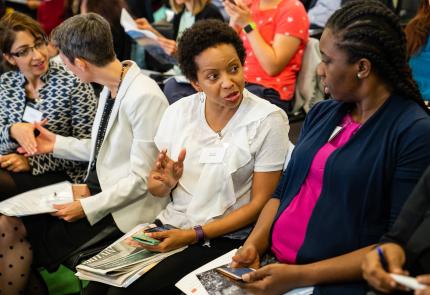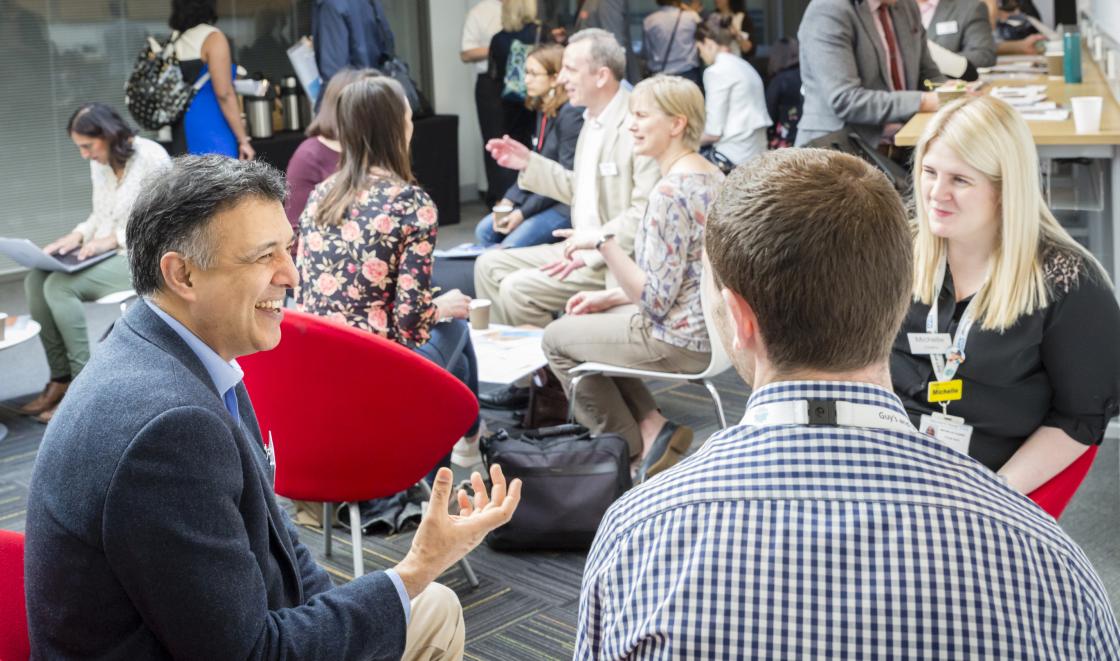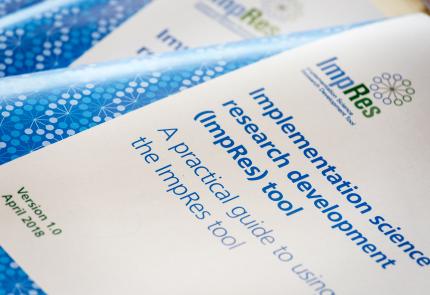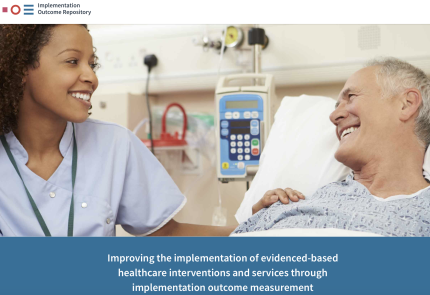At ARC South London this research is led by staff based in the Centre for Mental Health Policy and Evaluation at King’s College London. This research team are investigating how best to help ‘implement’ evidence-based practice and clinical research within health services in south London, nationally and internationally.
Researchers investigate the role of health and social care professionals, managers, commissioners of services and policymakers as well as organisational structures and processes to try to understand why health and social care services don’t always offer the safest, most effective treatments and ways of working. They also study which circumstances make it easy for research results to be adopted.
The need for implementation science research
Evidence-based and cost-effective interventions consistently fail to be implemented into routine health and social care practice and policy. Even when such interventions are implemented (or put into practice), the process is often challenging, unpredictable and typically slow. Over the past few years, increased and focused efforts to close the evidence-to-practice gap (the time it takes for evidence to be put into practice), have resulted in further recognition of the importance of implementation science. Despite this, designing high-quality implementation research remains a challenge for health and social care researchers without specialist training in implementation science.
Researchers need tools to help them design high-quality implementation research in order to facilitate the successful implementation and evaluation of evidence-based interventions.
Our research aims
Our research aims to generate tools that can be used by health and social care stakeholders (e.g researchers, managers, commissioners) to plan and evaluate implementation of complex health and social care programmes and interventions.
How our work is addressing multimorbidities and inequalities
As a cross-cutting theme we support the applied health research of the health and social care themes who are addressing the challenges of people living with multimorbidities and inequalities. Our theme deliverables include a validated ImpRes tool for designing studies and evaluations that account for implementation effectiveness; and an online repository of validated and appraised scales for assessment of implementing effectiveness. Together with our methodologic expertise, these deliverables will support the research and work of our ARC and beyond in addressing multimorbidities and inequalities across the health and social care pathways and programmes studied within ARC South London.

How we are involving patients, services users, carers and public
Before submission of the ARC bid, we consulted with members of our Patient Public and Involvement (PPI) advisory panel group, who reviewed and support the focus on the two proposed methodological development research projects. We will continue to engage and involve patients, service users, carers and public throughout the research cycle of both projects. We will also deliver workshops to enable PPI members to become implementation research co-authors/investigators.
Our collaborators
We are collaborating with leaders in implementation and improvement sciences nationally, including other ARCs (NW London, Greater Manchester, Yorkshire and Humber), Dr Zarnie Khadjesari (University of East Anglia) and Dr Deborah Ghate (UK Implementation Society). Our international collaborators include Professor Brian Mittman (Kaiser Permanente Research and Evaluation Department, USA).
Developing the fields of implementation and improvement sciences
Implementation science is a relatively new scientific discipline within health and social care but its importance has grown rapidly in recent years. Researchers in this theme work closely with the training and development leads to increase the capacity for implementation science training and expertise. They lead the annual Implementation Science Masterclass and the international Implementation Science Research Conference. As well as, providing training and advice to researchers, non-researchers and health professionals in implementation science methods and strategies to improve healthcare.
How are we taking this work forward
We are continuing to support ARC research themes to design high-quality implementation research, prioritising projects with a strong focus on implementation. We are also offering implementation research design clinics and an implementation study proposal review service. More widely, we are promoting awareness and uptake of implementation science research resources and tools (see below) to support the design of high-quality implementation research to widen the reach of implementation science across health and care research.
ImpResPAC
ImpResPAC (Implementation Research Proposal Appraisal Criteria) is a new comprehensive quantitative tool which can be used to appraise the quality of implementation research proposals in healthcare. It was created by researchers at NIHR ARC South London and informed by a large international Expert Advisory Panel.
ImpResPAC can be used by reviewers, researchers and practioners submitting and reviewing implementation research proposals, allowing the strengths and weaknesses of proposals to be readily identified.
View the ImpResPAC interactive PDF.
SC-ImpRes
The SC-ImpRes (Social Care Implementation Research) guide is a new resource which provides a step-by-step approach to designing and conducting implementation research in social care. The guide contains eight sections, each of which introduces key terms and concepts relevant to implementation research in social care and includes reflective questions and statements to consider when designing and conducting implementation research.
View the SC-ImpRes (Social Care Implementation Research) interactive PDF.
King's Improvement Science
Improvement scientists investigate the best and most appropriate methods that can be used to improve the quality and safety of health services. Researchers working in this relatively new academic field investigate factors that can encourage or impede improvement. King's Improvement Science (KIS) is a King’s Health Partners-supported research programme which was established in 2013, aimed at enhancing how quality improvement activity is carried out across major south London health care providers. KIS comprises an interdisciplinary team of researchers and quality improvement experts.
In 2018 they launched Resources about Improvement and Implementation’ – which can be used to design scientific or practical improvement projects. The KIS programme is aligned to the NIHR ARC South London as co-funded research infrastructure. The team will continue to support scalable improvement projects across the host NHS Trusts and King’s Health Partners, as well as develop methodological research to further advance the science of improvement.
Read more about improvement science







